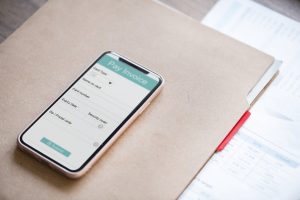We are often asked by clients if they need to charge VAT on the expenses that they recharge to their own customers.
The simple answer is yes, you charge VAT if you benefit from the expense, and no you don’t charge if it is your customer who benefits from the expense.
Let’s say you are an IT consultant and have to travel somewhere far from home and stay over night to install a new computer system at a client’s premises. The cost of your travel and hotel is of no benefit to the customer – it doesn’t make their new system any better – so you would charge VAT on those expenses you incurred.

But let’s say as part of the new system you were also setting up a new website and had to register a new website domain for them. In that case you would not charge VAT on the expense as it doesn’t benefit you, it’s the customer who has a new web domain to use as they wish going forward.
These are known as disbursements – you don’t need to charge VAT to the client but you also can’t claim back VAT on them either. So as in the example above, you bought a domain name for a client at £120 (£100 plus 20% VAT) then you re-bill it to your client at £120 with no extra VAT added. You can’t claim back the VAT you paid out, but the net effect is zero so you are no worse or better off.
To treat a payment as a disbursement all of the following must apply:
- you paid the supplier on your customer’s behalf and acted as the agent of your customer
- your customer received, used or had the benefit of the goods or services you paid for on their behalf
- it was your customer’s responsibility to pay for the goods or services, not yours
- you had permission from your customer to make the payment
- your customer knew that the goods or services were from another supplier, not from you
- you show the costs separately on your invoice
- you pass on the exact amount of each cost to your customer when you invoice them
- the goods and services you paid for are in addition to the cost of your own services
You do not have to separately itemise the recharges on you bill if you do not wish to, but if you do you must refer to them as recharges rather than disbursements, and you must charge VAT on them even if you yourself did not pay VAT on them – for example a train ticket.
There is also no requirement for you to charge the same to your client as you paid, you could have paid £5 for a train ticket but can charge your client £10, just as long as the VAT is applied correctly.
If you pass on any disbursements to your customers and correctly don’t charge VAT on them, you must keep evidence, such as order forms and invoices, to show that you were entitled to leave the items out of the VAT calculation when you invoiced your customers. You must also be able to show that you haven’t claimed back the VAT on items you paid for on your customers’ behalf.
So, in a nutshell – if it benefits you then charge VAT, if it benefits the customer – then don’t charge VAT.
More information can be found at HMRC here.


